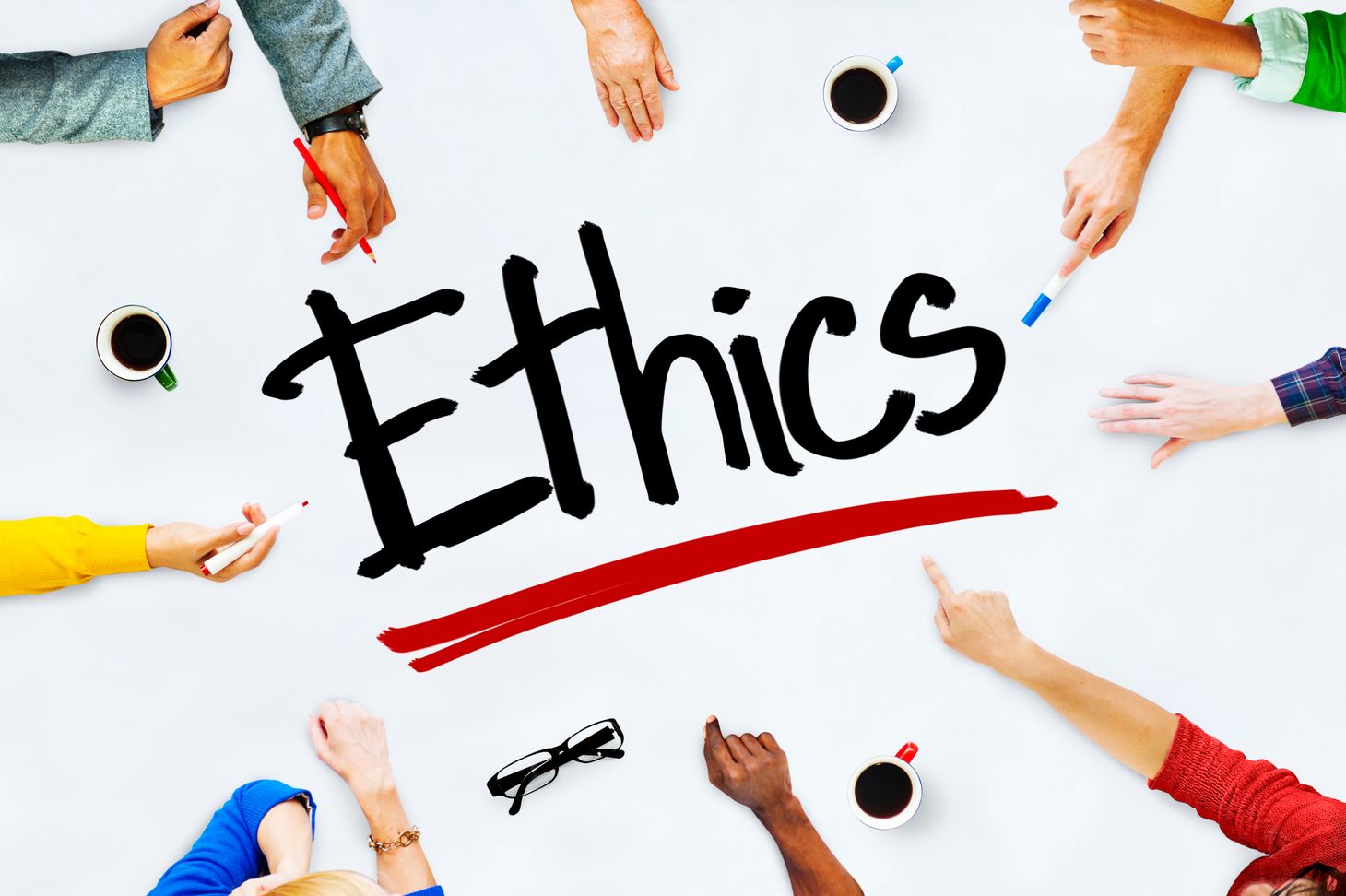Ethics: The Missing Link to a Better Society
Ethics are essential to any functioning society, but unfortunately, many people have become too accepting of unethical behavior. Greed, jealousy, and selfishness can lead to unethical decisions, and the media has a history of glamorizing those who break the rules.

Imagine a world where companies dominate the headlines, hailed as groundbreaking innovators in their respective fields. Now, picture the collective frustration when the veil of success is lifted, revealing unethical practices and leadership at the helm.
That was the reality for Theranos and FTX.
How can we trust the business world when more and more leaders seem to have left their moral compasses behind? This glaring issue calls for a deep discussion on ethics in business, where we explore the consequences of pursuing success without integrity. It is time to redefine how we measure success.
"Ethics is knowing the difference between what you have a right to do, and what is the right thing to do." ~ Potter Stewart
Ethics is the fundamental principle that governs human behavior and how we interact with each other. Ethics is about knowing the difference between right and wrong and making the right choices, even if it means going against the norm. If being ethical is good, why aren’t we seeing more of it? Why does ethics seem to be missing from entire sectors of our society?
Unethical Behavior
People seem more motivated to follow short-term profits than long-term success. Companies often prioritize the bottom line over their employees, customers, and stakeholders. Often, unethical behavior is seen as just another business tactic with no consequences. But it has consequences. Just ask Elizabeth Holmes, who is now serving an 11-year sentence for her role in Theranos.
What leads people to be unethical?
By being surrounded by people who engage in such behavior. We can see this in many workplaces, where there is a culture of bending the rules to gain an advantage or pursue success at any cost. This environment can lead someone to believe such practices are acceptable or normal. Greed, jealousy, and selfishness can also lead people to unethical behavior. It is easier to make unethical decisions when you are only looking out for yourself.
Universal Principals of Ethics
Does everyone have the same understanding of ethics? Cultural backgrounds, beliefs, and value systems shape their understanding of ethics differently. Definitions of what is right and wrong can vary. However, the universal principles of ethics remain the same - act with integrity, be honest, and treat others with respect.
The universal principles of ethics are based on the most basic concept:
- Act with Integrity: Acting with integrity involves making ethical decisions even when it is difficult. It means courageously standing up for what you believe is right and not taking unethical shortcuts.
- Be Honest: Being honest refers to the act of openly and truthfully communicating one's thoughts, feelings, and intentions. It involves being truthful in both verbal and non-verbal communication. Honesty is essential in sustaining a healthy society, as it helps build trust between people. It is about being truthful and accountable for your actions.
- Treat others with respect: Respect can be seen as a core value when it comes to ethical behavior. Respect does not mean agreeing with someone; it means recognizing their right to have an opinion, even if it differs from yours. Respect also involves treating everyone equally and with dignity, regardless of race, gender, age, background, education, citizenship, or other factors.
Traits of Unethical Behavior
Unethical behavior can take many forms, but they all share specific characteristics.
One of the most common traits of unethical behavior is a disregard for the feelings or rights of others. This can manifest as a lack of respect for others’ opinions or beliefs, taking advantage of someone in a vulnerable position, or deliberately ignoring established rules and regulations.
Another trait of unethical behavior is dishonesty. This may be as subtle as omitting information or withholding the truth, or it can be outright lying. Unethical people often try to take advantage of situations by manipulating facts and distorting reality to get what they want.
Finally, unethical behavior typically involves a lack of accountability. Unethical people often try to avoid responsibility by blaming others or shifting blame onto someone else. They may also engage in activities that put their own interests ahead of those of the group and fail to take responsibility for their actions.
Too Accepting of Unethical Behavior
Unfortunately, society has become too accepting of unethical behavior. We celebrate people who break the rules; some even become role models for the younger generation. We often hear stories of CEOs who acted unethically but still found success with no consequences. This sends the public a message that ethics are unimportant, creating an environment where people think they can get away with anything.
This must change if we hope to build a better society. We must shift our focus from short-term, superficial success to long-term success grounded in ethical practices. We need to create a culture where people understand the importance of ethics and where everyone is held accountable for their actions.
Ethical Role Model
It is up to each one of us to be an ethical role model and lead by example. We must show that success can be achieved without sacrificing our morals and values. It’s time to redefine what success means, and ethics must be central to this discussion.
The future of our society depends on it. We must all do our part in promoting and modeling ethical behavior to ensure we build a society based on integrity, honesty, and respect.
Conclusion
Ethics is the cornerstone of any viable society or organization, and it starts with teaching and modeling ethical behavior from a young age. It is a shared responsibility, not just that of the parents, to instill good values in the younger generation. We all have a duty to lead by example and set the standard for ethical behavior.
It is the responsibility of all of us to create a society that values ethical behavior and holds people accountable for their unethical actions. If we do that, we can create a better world for ourselves and our kids.



